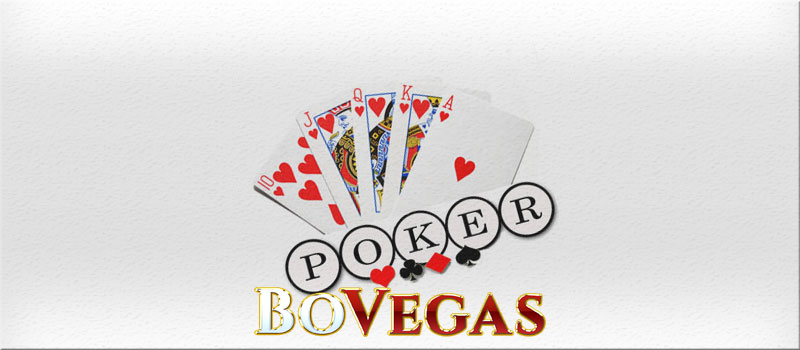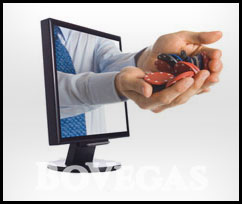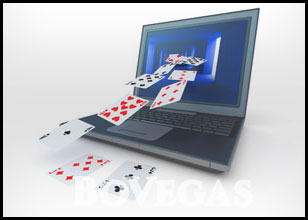



The increasing popularity of poker leads many novices to question their approach and wonder whether to prioritize theory over practice or vice versa. There’s probably no quick answer to that, as both theory and practice are essential parts of poker mastery. Speaking of playing online, some say that mathematical analysis outweighs bluffing, as no visual contact is involved. But it might not be so easy.
Game theory became a thing in the 1950s, when university professors started studying strategic interaction in games and applying mathematical models. A great deal of research on game theory has since been conducted, particularly concerning poker. There’s even an MIT course where types of players and ways to calculate the odds are explained.
You’ll be surprised by how many books have been written on poker theory. David Sklansky, who is the most well-known in the community, formulated the fundamental theorem. According to Sklansky’s theory, you lose every time you’re playing the game differently from if you could see what cards your opponents have, and vice versa. It’s just a theoretical concept, and it won’t help you shape a perfect strategy. What it demonstrates is that you need to improve your game by predicting situations and learning how to read hands.
It’s crucial not to push the theoretical approach too hard. Poker is a social game that requires not only logic and math but also bluffing skills and emotional control. If a player is grounded in theory, it doesn’t mean they will succeed at the table. Players have to gain valuable experience, analyzing their opponents and their own behavior.
Apart from physical or verbal tells, there are a lot of bluffing techniques you can use in online poker. It’s all about position and stack size. To deal with others bluffing online, it’s advisable to take notes on opponents and review their hand history.
Game theory is also used in another respect: not only does it make studying poker situations to prove scientific facts and introduce strategies to players possible, it also contributes to the process of developing state-of-the-art gambling bots. Automated programs are error-free regarding math, and can even learn from their opponents.

In a well-known book about Poker Hold’em, Sklansky distinguishes six levels of thinking. Basically, the more complex a player’s thinking, the more layers of the game they are capable of apprehending and the better the chance they will make good decisions. These levels can be described by questions poker players set themselves:
That is to say that you shouldn’t underestimate the practical value of playing. While mathematical thinking and counting are also extremely important, heuristics is probably the determining factor of how to get good at poker.

It’s a good idea to practice poker offline before going online. There are free lessons in many card rooms, eager to hook new customers, and relatively cheap interactive tutorials provided by online academies. You can also easily organize home cash games with friends. Don’t hesitate to watch some poker shows or download a couple of poker trainer apps: they all might come in handy. The more thoughtfully you play, the better you’ll become at adjusting to different stack sizes, hand reading, and manipulating your opponents. In such a way, you will get an opportunity to experience a wide range of poker situations and get used to them, and various questions like “what does tilt mean in poker?” or “how to play against calling stations” will not make difficulties to you.

Video poker may be perceived as a unique combination of a traditional poker game and slot machines. Even though you might have some hesitations about your chance of winning, there are still some techniques that may help you to become a better punter. The rules aren’t that hard to understand and the house edge is […]
It comes with no surprise that modern gamblers are switching to digital payments, which are way faster, and also a lot more convenient! The high-tech era we live in requires appropriate payment methods, and this is increasingly true of many different businesses. The gaming industry is one of the most fruitful domains for new solutions […]
Betting on widely debated things like who is going to win the next presidential race seems like a pretty obvious gambling option. Yet, until recent years, avid bettors seem to have underestimated the value of political betting. So, why do people find it normal to argue zealously and wager money about which team is going […]
The boom in mobile gaming apps is just one of the examples of modern technology’s impact on people’s everyday lives. Mobile apps are gaining ground globally, advancing and forthputting in every possible way and area of implementation. It looks like whatever use of our mobile devices we could even theoretically think of — sooner or […]
If you love gambling and have been to a land-based casino at least once, you may have thought about becoming a dealer. Playing the same game but from the opposite side, while communicating with other players, sounds like a dream job, right? A dealer is a straightforward job, and you will be the heart and […]
On Monday September 14, MGM announced that it plans to open its first smoke-free casino at the end of September, when Park MGM will finally reopen its venues to players and tourists. The resort comprises around 2,990 rooms and various restaurants, and it’s set to be reopened on September 30. The venue has been closed […]
Online gambling has undoubtedly taken a place of true supremacy over the casino industry during the pandemic. And the reason for that is quite clear: online casinos are more accessible, and you can always count on some encouragement from the casino administration to help you boost your game. However, this digital revolution has only been […]
The large selection of online gambling sites out there can make players somewhat puzzled, and give them a feeling of uncertainty about making the right choice of casino. Each online gambling venue offers its own conditions, games, and various bonuses, of course; but the most important thing is the reliability of the casino and the […]